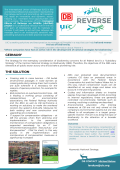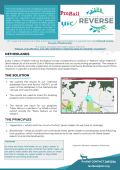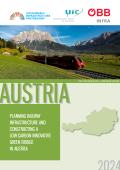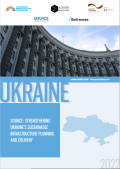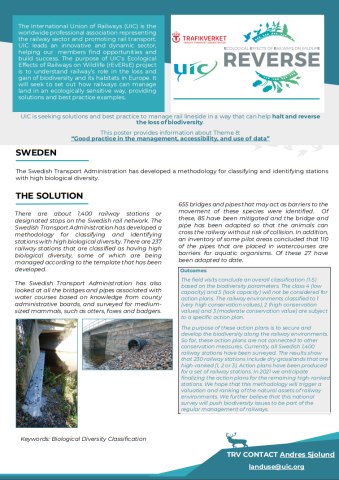
The "Ecological Effects of Railways on Wildlife" (rEvERsE) program, initiated by the International Union of Railways (UIC) in collaboration with a wide array of European stakeholders, is dedicated to finding effective solutions and identifying best practices for managing railway linesides. This initiative aims to not only halt the loss of biodiversity but also actively contribute to its reversal. The focus is on enhancing the ecological value of railway environments in a manner that supports wildlife and ecosystem health.
This case study focuses on the innovative approach adopted by The Swedish Transport Administration (Trafikverket) to preserve and enhance biodiversity in railway environments. They have developed a specialized methodology to classify railway stations based on their biological diversity. Through comprehensive field evaluations, each station is assigned a classification ranging from 1 to 5, reflecting its conservation value. Stations categorized as Class 1 (very high conservation values), Class 2 (high conservation values), and Class 3 (moderate conservation value) are earmarked for tailored action plans. These action plans are strategically designed to both safeguard and foster biodiversity along the railway corridors, ensuring a proactive approach to environmental stewardship in the rail sector.

